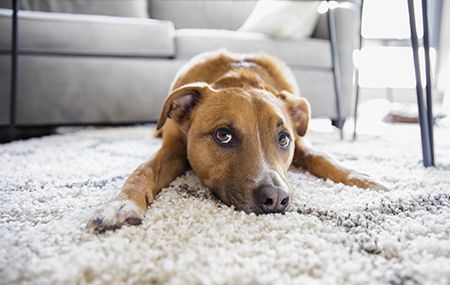Why at-home veterinary visits matter
Holistic veterinary care isnt the hippy-dippy practice you think it is. In fact, it might be the best way to diagnose that tricky patient youre losing sleep over.

Photo: Shutterstock.comPeople throw around the term “holistic” without always understanding what it means. Holistic veterinary care takes into account the pet as a whole-not just their current clinical signs. When taking a holistic approach to a companion animal, the veterinarian will examine the pet's lifestyle, environmental factors, mental and social health, nutrition and more.
The connection to my work as a house-call veterinarian is obvious. In veterinary school, we're taught that the best test you can do on a pet for information is the physical exam. I've since learned as a mobile vet how much more information I can get to help my patients by examining the pet in their own environment.
In other words, house calls allow veterinarians to truly examine a pet holistically.
During a house call, I'm able to see how the pet greets newcomers and responds to strangers. I can assess a pet's gait by seeing how he moves in his home or around the yard. I can also examine the pet's environment: how he lives, how the home smells, where and how he's fed, what's in the yard (and note if there is a yard) or litter box.
All of this helps me make important recommendations for the pet. Along with factors of physical location, I'm also able to observe other important dynamics, like how the pet interacts with other animals and how the people in the house treat him-all of these can shed light on many issues, particularly behavior.
There were a few cases that became my initial “aha!” moments as a mobile veterinarian. These were the instances where I realized how house calls improved my ability to help patients:
> Walking into a house full of smoke and seeing the cat-already seen by three other traditional veterinarians for hairballs-have an asthma attack.
> A backyard tour for a dog that was going “outside peeing all night” and seeing mounds of melena. The pet was on carprofen, and the owner never went into the yard with the pet.
> Observing from litter box tours how many cats are actually constipated and how many “vomiting” cats are fed smorgasbord-style.
> Meeting a client's spouse who hates the animals and watching their in-home interaction while discussing house-soiling behaviors.
> Testing blood sugars at home and discovering cats that were eating to survive their insulin overdose (due to high sugars outside of the home from stress).
The house call can give veterinarians an entirely new perspective in an evaluation as well as a diagnostic wealth of information. An in-hospital exam room setting doesn't yield clear clues. Environmental cues of the home are gone, and stress-both from pet and pet owner-is an added factor that can change the exam. In a hospital, pets are stressed, and signs the veterinarian wants to see may completely disappear with their surge of adrenaline.
Compounding this is the excitement of the hospital-accompanying odors, sights and sounds from other animals the patient may run into or notice. The stress response changes the cooperation of the pet and requires not only a good exam, but an educated guess based on the owner's history of the issue as well. Along with all of this, hospital visits add the risk of contagious disease transmission to and from patients.
“Holistic” veterinary care is all-encompassing and shouldn't be viewed as an “alternative” anymore, but as a preferred method of examining patients. Veterinary home care provides a better context of pet health by showing living conditions and illustrating information that an owner may not share (or even know to mention) on an in-hospital history. Sometimes a veterinarian wouldn't even know to ask about it.
Mobile medicine can remove some of the challenges inherent in the traditional hospital visit, where both pet and pet parent feel elevated stress. Stepping directly into the lives of pets and their parents can be a reward for everyone involved.
Dr. Lisa Aumiller is head veterinarian and owner of HousePaws Mobile Veterinary Service in Mt. Laurel, New Jersey. In addition to having four mobile units, she operates a hospital for clients who want traditional care.